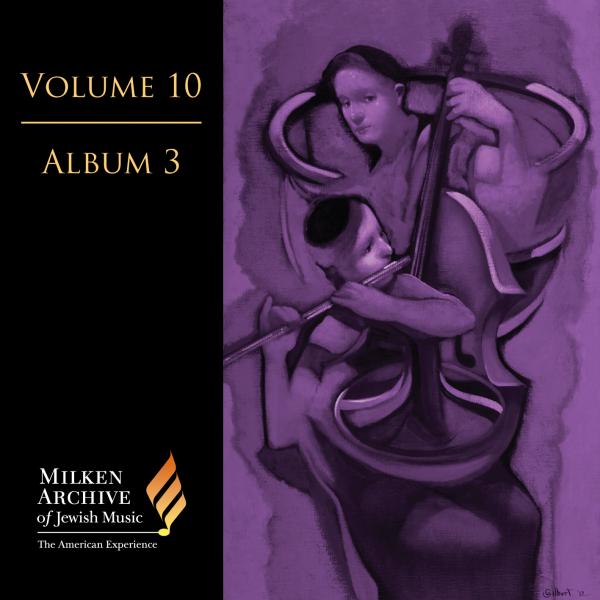Tracks
Liner Notes
The Hebrew word tzaddik translates literally and generically as a righteous person. But in Hassidic lore the appellation denotes a revered saintly leader or master (whether or not he leads a particular Hassidic dynasty or court), known not only for his learning but also for his commitment to spiritual purity; righteous conduct; intense love for God and, by extension, for all His people; and enthusiastic fulfillment of all Divine commandments, laws, and precepts in their entirety and on spiritual as well as legalistic levels. Throughout the history of Hassidism, many tzaddikim have been believed superstitiously by their adherents and disciples (Hassidim) to possess mystical beneficial powers (through Divine will, of course), including physical, mental, and emotional healing; and tzaddikim have even sometimes been perceived by their followers as human incarnations of the Torah. Some have been known especially for their belief in the power of song for healing or other so-called miracles involving Divine intercession. During the more than two and a half centuries since the birth of the modern Hassidic movement, many legends have accumulated around the lives and deeds of various tzaddikim, sometimes during their own lifetimes. “Borrowed ideas and true originality are mixed in this overwhelming wealth of tales,” wrote the eminent scholar of Jewish mysticism Gershom Scholem, “which play an important part in the social life of the hassidim. To tell a story of the deeds of the saints has become a new religious value.”
Smit’s chamber work Tzaddik is a musical depiction of a typical tzaddik—the legends of awe and admiration surrounding him and the ecstatic joy and faith of his followers. Written in 1938, the piece exists in several versions: for string quartet, for piano trio, for a quartet of trios (wind, brass, strings, and percussion with mandolin and accordion), as well as this version for saxophone quartet—the composer’s favorite.
Tzaddik is partly a theme—actually a few individual motives—and continuous variations. There is a slow, meditative introduction that evokes the image of a tzaddik deeply lost in thought or spiritual contemplation, with dark sonorities that exploit the lower registers of the saxophones with some polytonal echoes of Milhaud. An incipit from a ubiquitous eastern European Jewish wedding band tune, known virtually to all klezmorim, is quoted initially in unison following that introduction. It is then subjected at first to canonic and then other contrapuntal treatment and developed through fragmentation, imitation, and intervallic manipulation. Other melodic material typical of sprightly dance tunes played by such bands is injected at various points, ornamented early in the piece by mildly explosive fanfare-like arpeggios. A secondary, recurring theme consists of cadential repeated pitches and becomes a binding element in the piece. After a succeeding slower but still dancelike section (or variation), built around a three-pitch recurring motive that is interrupted periodically by momentary silences, another slow interludal meditation recalls the mood of the introduction. But the quick-paced dancelike themes return, culminating in a succession of trills on each of the instruments. A continuing alternation of fast and slow sections continues to operate as a series of variations on the motives presented earlier. Throughout, there are brief, additional fragmentary quotations from eastern European folk melos. The work concludes with a hymnlike homophonic section.
Credits
Composer: Leo SmitPerformers: Amherst Sax Quartet
Publisher: Trishky Music Co.
